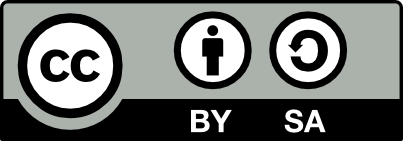Enemy and War in Carl Schmitt’s Political Theory
cytuj
pobierz pliki
RIS BIB ENDNOTEWybierz format
RIS BIB ENDNOTEEnemy and War in Carl Schmitt’s Political Theory
Data publikacji: 05.03.2020
Zoon Politikon, 2020, 11/2020, s. 29 - 41
https://doi.org/10.4467/2543408XZOP.20.002.12529Autorzy
Enemy and War in Carl Schmitt’s Political Theory
The subject of the following article are the basic concepts present in Carl Schmitt’s political theory: concepts of enemy and war. The concept of the enemy is defined in the first part of the work in the context of coexistence with the concept of friend as the fundamental opposite of the theory of politics. The next part of the essay defines the concept of war, and then describes the right to war (ius belli) as a special right of the state. The last part of this paper deals with the particular concept of enemy, the internal enemy.
Chmielniak, J. (2010). Epoka techniki, pokoju i depolityzacji: wstęp do lektury Carla Schmitta [The age of technology, peace and depoliticization: The introduction to reading Carl Schmitt]. Dialogi Polityczne, 13, 62-76.
Engelking, W. (2019). Carla Schmitta krytyka liberalizmu w latach 1916-1938. Próba syntezy i interpretacji [Carl Schmitt’s Critique of liberalism between 1916 and 1938. An attempt at synthesis and interpretation]. Czasopismo Prawno-Historyczne, 71(2), 137-164.
Lewandowski, A. (2017). Konflikt i przemoc w koncepcjach polityki Chantal Mouffe oraz Carla Schmitta [Conflict and violence in Chantal Mouffe and Carl Schmitt’s Political Concepts]. Społeczeństwo. Edukacja. Język, 5, 16-17.
Maciejewski, J. (2018). Carl Schmitt, niebezpieczny filozof. Retrieved 17 December 2018, https://www.rp.pl/Plus-Minus/302239875-Jan-Maciejewski-Carl-Schmitt-niebezpieczny-filozof.html.
Mouffe, Ch. (1999) Carl Schmitt and the Paradox of Liberal Democracy [in:] The Challenge of Carl Schmitt. (Eds.). Mouffe, Ch. London, New York: Verso.
Pawlik, J. (2014). Filozofia Carla Schmitta i jej wędrówki po młodej polskiej demokracji [Carl Schmitt’s Philosophy Travelling Through Young Polish Democracy]. Władza sądzenia, 53-65.
Rysiewicz, M. (2010). Gdy prawo ustaje i wkracza siła… Stan wyjątkowy w myśli prawno-państwowej Carla Schmitta [When the law stops and force enters. . . A state of emergency in Carl Schmitt’s legal and state thought]. Dialogi Polityczne, 13, 77-93.
Schmitt, C. (2016). Dyktatura [Dictatorship]. Warszawa: Kronos.
Schmitt, C. (2000). Teologia polityczna i inne pisma [Political Theology and other essays]. Warszawa: Aletheia.
Skarzyński, R. (1996)(Eds.). Carl Schmitt i współczesna myśl polityczna. Warszawa: Dom Wydawniczy Elipsa.
Strauss, L. (2008). Uwagi do pojęcia polityczności Carla Schmitta [Comments on Carl Schmitt’s concept of politics]. Kronos, 3, 58-73.
Szacki, J. (2003). Historia myśli socjologicznej [History of Sociological Thought]. Warszawa: PWN.
Święcicki, Ł. (2017). O recepcji Carla Schmitta w Polsce [About Carl Schmitt’s reception in Poland]. Pro Fide Rege et Lege, 1-2(77-78), 234-247.
Wielomski, A. (2007). Konserwatyzm. Główne idee, nurty i postacie [Conservatism. Main ideas, currents and characters]. Warszawa: Fijorr Publishing Company.
Wielomski, A. (2017). Geneza antropologii politycznej Carla Schmitta [Origins of Carl Schmitt’s Political Anthropology]. Studia nad Autorytaryzmem i Totalitaryzmem, 39(1), 75-94.
Informacje: Zoon Politikon, 2020, 11/2020, s. 29 - 41
Typ artykułu: Oryginalny artykuł naukowy
Tytuły:
Enemy and War in Carl Schmitt’s Political Theory
Enemy and War in Carl Schmitt’s Political Theory
Institute of Sociology,,
University of Warsaw, Poland
Publikacja: 05.03.2020
Status artykułu: Otwarte
Licencja: CC BY-SA

Udział procentowy autorów:
Korekty artykułu:
-Języki publikacji:
Angielski